Transparency
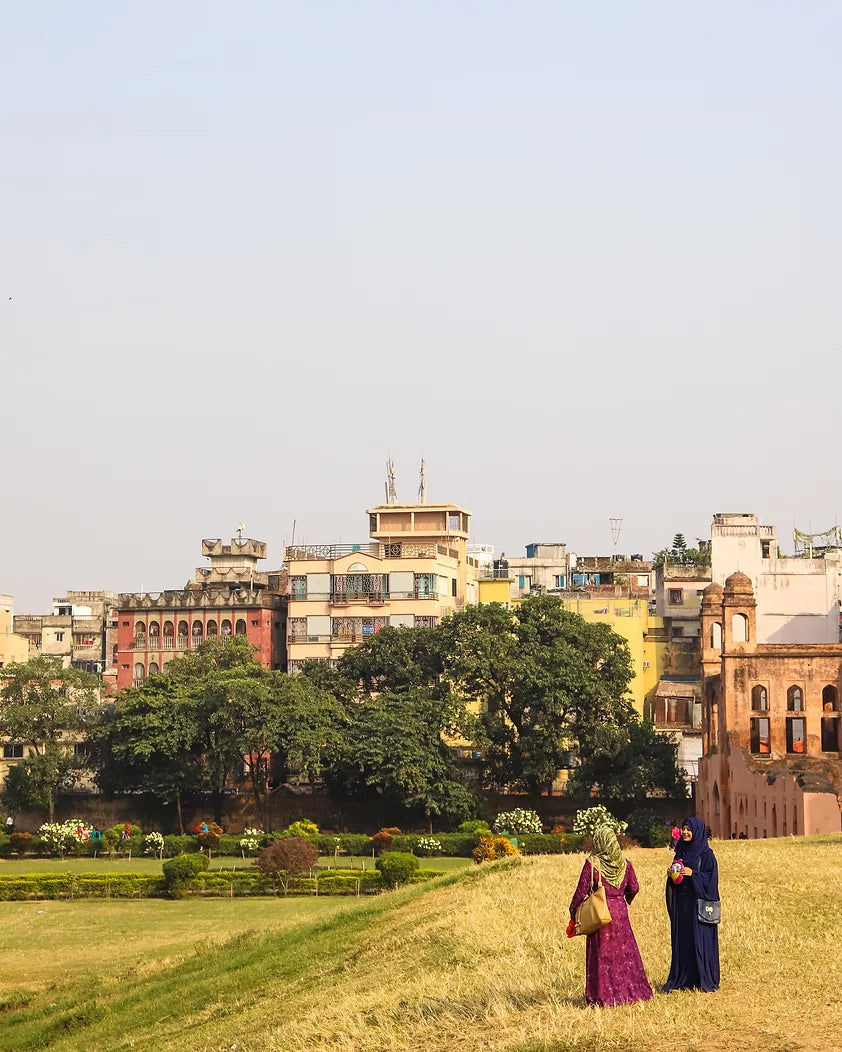
Our guiding light is the interconnected link between poverty and ecological damage.
Our values to care for people and planet drive us to create the best organisational model possible. This is why transparency is more than simply reducing our carbon footprint or ticking some sustainability boxes, transparency is embedded into the fabric of who we are at Reemi.
There are so many things to take into consideration around what we believe to be what a sustainable business looks like. Everything from using traceable materials, to paying workers a fair wage, to decreasing our carbon footprint, to using an inclusive diverse range of models. We want our product to empower you, to care for your body and to help empower and educate women in places that need it most.
-

Everything that we do begins with our values, which inform each and every part of the process. Our commitment to these values results in the strength and success of our impact.
-

We aim for all of our raw materials to have the lowest impact on the environment, while also functioning to the highest standard. We spend hundreds of hours on responsible sourcing and researching innovative technology because we want the best for our planet, and we also want the best for your bod.
-

Worker well-being is central to our work. Our team has been trained and continues to get advice from our ethical consultant to ensure that we are working towards best practice, both from factories where we order products and the factories we partner with. We know what questions to ask, what signs to look for and which precautions to take when entering a building.
-

We care about how our products and materials move around the planet and how they're packed.
-

What else are we doing that is deeply intentional? Read more here!
-

Last but certainly not least! This is the most important part of our work; period equity.
Our Values
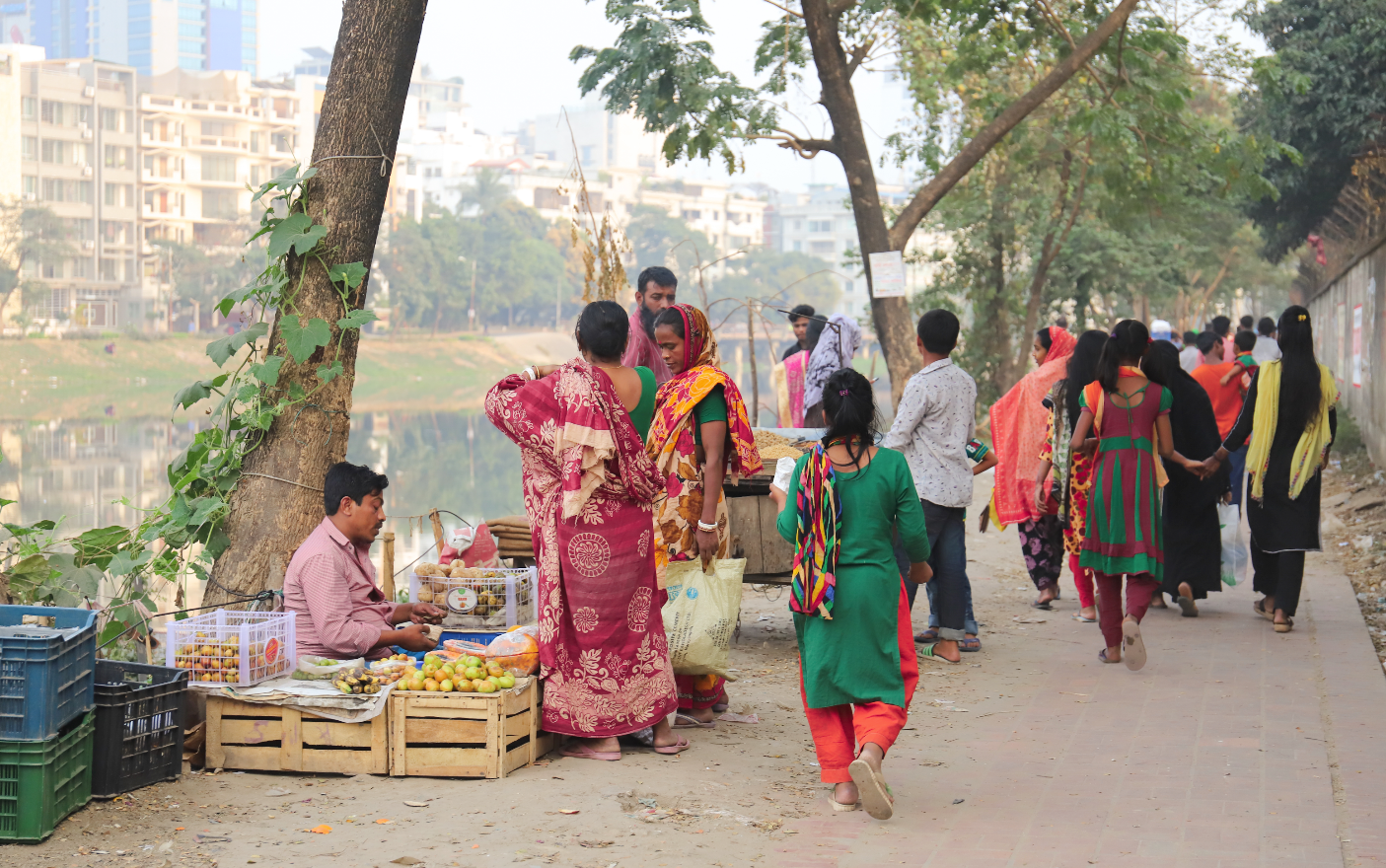
Transparency
We’re committed to showing you everything, the good, the bad and everything in between.
Respect & Dignity
It’s important we communicate the hope and beauty of the people we serve.
Creativity & Innovation
We believe in always asking the question, “can we do it better?”
Partnerships
We have seen the power of community and we are here to build it.
Excellence
Hold us to the highest standards, because that’s where we want to be.
Raw Materials
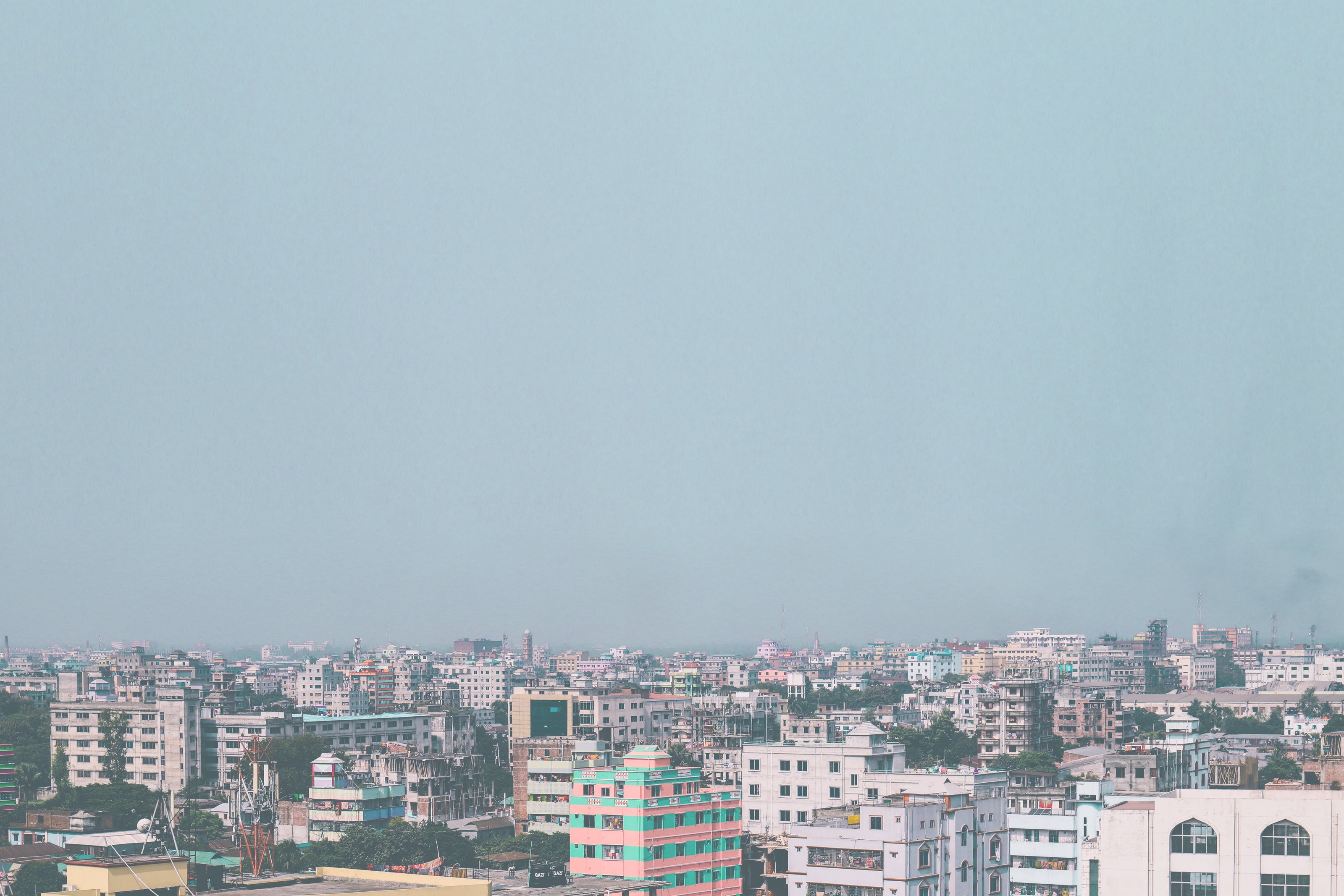
TENCEL™ MODAL
The main fabric that all our underwear is made from is Tencel™ Modal.
Up to 95% of Tencel™ Modal production process is recovered - an almost complete closed loop process. Tencel™ Modal is the most ecological and clean viscose that is being manufactured in the world. For every fabric we adorn on our bodies, there are many processes that we need to take into consideration for sustainability. Bamboo for example, can be very sustainably grown but the process to turn this hard raw material into a silky smooth fabric may use harmful chemicals.
We chose Tencel™ Modal for its genuinely sustainable approach.
The Process:
Tencel™ Modal is made from sustainably harvested beech trees in Austria. As Lenzing explains “The way that beech trees grow is something truly special. They multiply by "rejuvenation" which means that the trees propagate by themselves”. No artificial irrigation or planting is required.
Wood pulp is converted into fibre using a solvent that has low toxicity and is recycled in a closed-loop process, which means that 95% of chemicals are reused. In addition, a co-product, sodium sulfate, is generated in the fibre production. This valuable chemical is used in the detergent, glass and food industries. White Tencel™ Modal is certified as biodegradable in all natural and industrial environments: in the soil, compost as well as in fresh and in marine water.
Please note that our Tencel™ Modal is currently dyed black but we are looking into this impact long term. Small steps of progress!
Why are alternative fabrics a concern?
Polyester and Nylon:
Raw Materials: Polyester, nylon and most synthetic fibres are made from oil. We want to reduce our reliance on plastic and oil.
Chemistry: Most polyesters and nylon are not processed in a closed loop, so new chemicals that are harmful are required.
Non-Biodegradable: Plastic never breaks down.
Viscose/Rayon/Regular Modal Fibre:
Forestry: Wood sources are not always traceable, particularly if the fibre does not come from a responsible mill.
Chemistry: Viscose fibre is not processed in a closed loop, so new chemicals are continually required. Its production is much more energy and chemically intensive than Tencel™ Modal. In fact, some ratings for these fabrics can be worse than polyester!
Non-Biodegradable: Not many viscose, rayon or regular modals are certified biodegradable.
COTTONX™
We felt it was important to have an antimicrobial fabric. Not only does it reduce the risk of infections, it also reduces odour. Antimicrobial fabrics usually gain this property through a chemical treatment applied to the fabric after it has been spun from fibre to fabric. A chemical treatment has a limited life span and eventually, it gets washed out and will get washed into the waterways.
So we researched ways we could ensure we had a longer lifespan, and that nothing harmful would wash into the waterways, and we found CottonX™. It’s a fabric made of entirely natural fibres, where copper oxide is fused with cotton. Even after 100 washes, the antibacterial integrity remains at 99%.
We chose this as our secondary core fabric for our period underwear.
Raw Materials: A smart fibre, fusing 100% natural cotton from Turkey with copper oxide from the USA, completely natural raw materials.
Chemistry: There is no chemical treatment applied to the finish to give the antimicrobial quality.
Mill: CottonX™ is developed in a closed-loop manufacturing facility, our water, and our chemistry are completely recycled.
Hypoallergenic: Tested to be hypoallergenic (sensitive-skin friendly).
Biodegradable: There are only natural fibres in this fabric, which means it is biodegradable but it has not yet been certified for home composting.
Why are alternative antimicrobial fibres a concern?
Raw Materials: Many antimicrobial fabrics use polyester (oil-based fibres) as their base fabric.
Chemistry: Various chemicals are used to finish the product and will eventually get washed out into the waterways.
Mill: Most polyesters and nylon are not processed in a closed loop, so new chemicals that are harmful are required.
Non-biodegradable: Polyester based fibres are not biodegradable and will never break down.
PUL - LEAK PROOF LAYER
Our leakproof layer is the most environmentally-friendly PUL currently on the market and is a world first for period underwear. It’s made from recycled polyester and is recyclable with very high performance in breathability and waterproofness.
We've noticed many period underwear brands advertising as 'plastic-free' meaning that they don't have this layer and have used polyester/synthetic fibres instead. This is still plastic. We are yet to see a genuinely zero-plastic period underwear.
TRIMS - BRAND LABEL
The brand label sewn onto the middle of the elastic waistband is made from recycled polyester.
TRIMS - ELASTIC WAISTBAND
We want to be upfront that elastic isn’t great, but neither is lace. We’re always searching for alternatives. We switched from a lace waistband to elastic to ensure longevity of our product. We wanted to have a waistband that won’t stretch and lose shape over time. It’s really important for us to create something that has the best chance at being around as long as possible.
ORGANIC COTTON
Our t-shirts are made from 100% organic cotton certified by traceable GOTS (Global Organic Textile Standard).
Organic Cotton Benefits:
Raw Materials: Organic cotton crops are grown without pesticides, insecticides, herbicides or genetic modification and while using less water. These toxins are harmful for farmers and workers, us as consumers, and entire wildlife ecosystems.
Production: Through GOTS all textile processing units, manufacturers, and traders are all themselves certified by GOTS. This includes raw cotton suppliers, spinners, dyers, knitters, printers, and factories.
Biodegradable: There are only natural fibres in this fabric, which means it is biodegradable but we have not yet confirmed if this is certified for home composting.
Why Non-Organic Cotton is a Concern:
Worldwide, the impact of cotton farming is creating negative impacts both ecologically and socially. Non-organic cotton farming uses more toxic pesticides per acre than any other crop. These chemicals are harming our planet—stripping the land of nutrients, contaminating our waterways, and risking the health of the people who grow it.
Raw Materials: Incredibly high water usage and impacts of harmful chemicals on the environment and health impacts for farmers.
Production: No standards for processing units on water usage, dyes, chemicals or energy usage.
Sociological: There’s a known impact on the worker’s health, and suggested links to increasing rates of farmer suicide due to the pressures to purchase high-priced GM seeds.
ASColour Organic Cotton:
AS Colour is also part of the Better Cotton Initiative (BCI), and Amfori/BSCI
Manufacturing
Ningbo, China
Our underwear that is available for commercial purchase is made in Ningbo, China.
Employees: 95
Female Employees: 65
Employee benefits: Workers continued to be paid during COVID-19 lockdown and all employee benefits are in compliance with China labour law.
Has a workers committee: No representatives
Very low annual worker turnover - 6%
Certifications: SMETA by Sedex
Last audited: August 2020
Powered by hydropower
Why Ningbo, China? As a tiny business, it’s really hard to crack the apparel industry. Minimum orders of fabric, typically start at 5,000m (a 5k run!) and minimum orders of products can start at 20,000 units. It took us a long time to find a certified factory that was willing to do a much smaller run for our first product.
Naranganj, Bangladesh
Our organic cotton t-shirts are made by AS Colour in Naranganj, Bangladesh
Years working with AS Colour: 8
Employees: 377
Female Employees: 163
Employee benefits: They operate a social programme which provides the occasional meals for workers and their families and participated in Reemi’s first menstrual health education programme.
Has a workers committee: Yes
Certifications: Oeko-Tex, Global Organic Textile Standard (GOTS)
Last audited: January 2021
Hop Lun, Bangladesh
The period underwear we distribute as part of our menstrual health education programmes is manufactured by our friends at Hop Lun in Bangladesh.
Part of the HIGG Index - All Hop Lun factories have their Higg scores verified by an independent third party. They are part of the SEDEX Members Ethical Trade Audit that manages labour, health and safety, environment and business ethics.
BSCI.
GOTS certified
Global Recycled Standard certified.
Oeko-Tex certified
Digital wage payment system and transparent wage grids. Their vision is to have all employees on a living wage.
Financial literacy training for all employees.
Working overtime is always voluntary and is compensated in line with local laws and paid at a premium of 150% - 400% of regular compensation.
All Hoplun suppliers must sign a code of conduct.
Hop Lun’s vision is to move towards a circular supply chain, where virgin raw materials are substituted with recycled, or zero impact equivalents.
In 2019, Hop Lun signed the UNFCCC Fashion Industry Charter for Climate Action at the Fashion Summit in Hong Kong. By signing the charter, Hop Lun commits to reducing greenhouse gas emissions by 30% by 2030 in line with the ‘Paris Agreement’.
Initiatives like free eye screening and eyeglasses to all employees in Bangladesh.
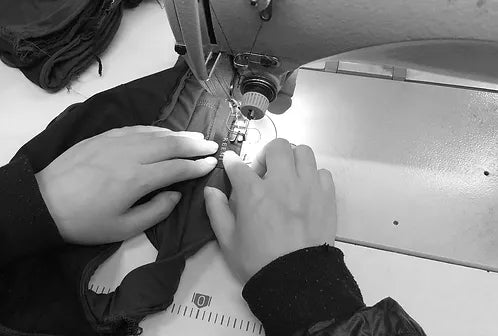
So much work goes into each pair of underwear - here, one of our skilled garment factory workers stitches the Reemi label onto a pair of underwear.
Shipping & Packaging
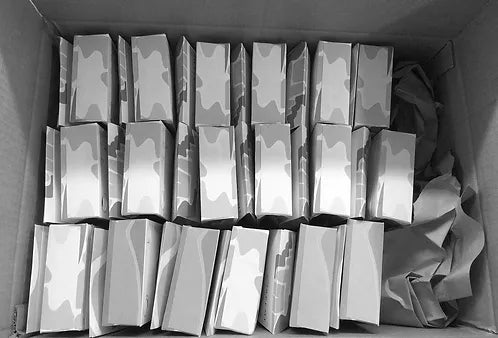
Attention to Details
We endeavour to sea-freight as much as we can, however due to delays on our timeline we’ve had to airfreight a percentage of this season’s stock for our stockists.
We offset our freight carbon emissions
All of our packaging is plastic-free
We use paper carton tape instead of plastic
Your Reemi come packaging in recycled and recyclable packaging. The courier bags we use are compostable.
No single-use plastic individually wrapped poly bags around each underwear. Sadly, single use poly bags for each item are common practice in the garment industry. We use a recycled (non-virgin) plastic box liner instead of individually wrapping each garment.
No swing tags or plastic garment tags
We use a compostable underwear liner for hygiene purposes
You + Reemi

Our Organisational Decisions
Without you we couldn’t do this so thank you! You’re helping make an impact on women all around the world.
We intentionally use diverse, inclusive people in our photoshoots to ensure that we're representing the enormous range of bodies out there in the world.
Our Reemi team is female-led. We are a living wage certified organisation, registered charity and take care to look after our team with our well-being fund.
Longevity - we believe reusable products are the future for our planet. Having Reemi’s can save our beautiful planet from being filled with tampons and pads that can take 500+ years to break down.
Tips & Tricks
Please wash your Reemi in cold water. Washing has a high carbon footprint and your Reemi’s do need to be washed after each use, but we can limit the carbon footprint by using cold water.
End of Life - To be honest we’re still working on an end of life solution for your Reemi's. Our yarn that we purchase from Lenzing for our Tencel Modal is compostable but we do get this yarn dyed so we are looking into whether or not it can still be composted. Our PUL is made of recycled plastic - unfortunately this product doesn't break down naturally, but it's necessary to have to ensure your underwear is leakproof. When we find something better we’ll certainly be investigating alternatives whilst balancing the longevity of the product and the function of the underwear.
Impact
This is the most important part of our work; period equity.
“So often interventions have failed to help developing countries because the needs and constraints of the poor were overlooked. You turned to research to understand the problem. You are advancing knowledge in the world and building a long lasting solution.” - Silvia Castro, PhD student in Economics at the University of Munich
From the outset we wanted to explore evidence-based solutions because we know from history that aid is limited, but transforming systems of knowledge and shifting cultural norms can break the generational chain.
And we haven’t stopped there.
We have let our local partners and organisations take the lead. They have guided us on what people want and what will actually work in their localised context.
We have now found solutions (and evidence to prove!) that are extremely popular and in hot demand. We are seeing the conversation around periods burst open between mothers and daughters, coworkers and management, husbands and wives, and family members - simply by providing something so different and so desirable.
Our current work in Bangladesh is providing sustainable and culturally appropriate menstrual products to garment workers and other low-income communities. As well as taboo-breaking education, led by our local teams.
Our research was funded by the Humanitarian Innovation Fund and competed against 300 global applications to secure funding. This work has been overseen by the University of Munich. Our partners include some of the biggest manufacturers (Hop Lun) as well as NZ brand AS Colour. But most importantly, Change Associates is our key implementation partner - a locally led non-profit with decades of experience in the garment sector. As well as design partner, iDE Bangladesh and some production by social enterprise, Basha Boutique. Some of our later (not in this section of research) research will include support from icddr,b - one of the biggest WASH focused institutions in Bangladesh. More info here.
Subscribe to our emails
We have some exciting things happening. Sign up here to be part of the journey!






